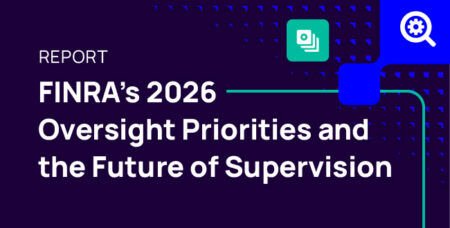5 Steps to an Effective Vendor Due Diligence Program for Financial Services
Imagine the scene: After months of searching, you've finally found a technology solution that seemingly fits your needs. You've consulted with the software's vendor, sampled a product demo, and got buy-in from stakeholders. At this point, the vendor might present a contract to sign so they can start integrating the software into your system.
But while the vendor has a good product, how secure is their system? How do you know if the product is safe, secure, compliant, and does everything it can to protect your organization and clients?
Before you sign on the dotted line, create an effective vendor due diligence checklist. Discover potential threats that could expose sensitive data and ruin your business reputation. Here are five tips you can follow for any hardware or IT infrastructure partnership.
1. Research the vendor
Start vendor due diligence by researching the company and ensuring it meets industry standards. You might want to test the company's knowledge of cybersecurity threats and ensure its product has undergone rigorous testing and quality assurance processes.
Ask the vendor:
· How long did it take to develop the offering?
· How long did it take to bring it to market?
· Will the technology receive the latest security patches and fixes in the future?
Keep in mind that not all vendors continuously monitor and update their products, which can bring numerous security risks to your organization.
2. Find out what other customers and users think of the vendor
You can also learn what previous and current users think about the vendor's product. Head over to review websites like G2 and Software Advice for verified user reviews and scores. Bad reviews can be a red flag that the product is unsafe or has security vulnerabilities that could lead to data breaches or other cybercrime incidents.
3. Evaluate your cybersecurity risk
Financial services companies are particularly susceptible to cybercrime incidents like data breaches, malware, and software supply chain attacks because of the vast financial data in their systems.
Research shows attacks targeted at these companies rose by 238% between February and April 2020. Ransomware alone increased ninefold, and wire fraud incidents jumped by 64% during this period.
That's why it's critical to evaluate each company's cybersecurity risk when consulting with vendors. Resolve to work only with companies that guarantee ongoing safety, transparency and compliance.
4. Ensure vendors comply with industry regulations
Financial services companies need vendors to comply with FFIEC, PCI, GLBA, and other industry regulations. Failure to adhere to guidelines could damage your reputation and lead to expensive penalties.
Before signing any contract, ask a vendor how it complies with regulations. An example would be encrypting customer data per PCI requirements. You can also ensure vendors comply with financial services industry regulations by including service-level agreement (SLA) terms.
5. Use a vendor risk assessment solution
A solution like Privva automates vendor security risk assessment for the financial services industry using a simple two-step process:
-
It catalogs existing vendors that provide products and services to your organization. Privva can use your current assessment or create a custom solution based on your business needs and budget.
-
Evaluate future vendors and prevent security risks from damaging your reputation. Privva evaluates risk profiles before third parties get access to sensitive data.
With Privva, you can:
· Build proprietary assessments based on internal policies
· Assign tasks to vendors
· Compare vendors against industry benchmarks
· Automate the risk assessment questionnaire process, and
· Manage and review vendors from a cloud-based platform.
Final word
Vendors know how to market their products to financial services companies using specialist strategies. That's why it's important to overlook the sales spiel and conduct your own investigations to determine whether a product is safe, reliable, compliant, and suitable for your organization. Follow the five steps above and create an effective vendor due diligence program.
Learn more about vendor security with Privva's "7 Steps to Effective Vendor Risk Management" whitepaper.
Share this post!
Smarsh Blog
Our internal subject matter experts and our network of external industry experts are featured with insights into the technology and industry trends that affect your electronic communications compliance initiatives. Sign up to benefit from their deep understanding, tips and best practices regarding how your company can manage compliance risk while unlocking the business value of your communications data.
Ready to enable compliant productivity?
Join the 6,500+ customers using Smarsh to drive their business forward.





Subscribe to the Smarsh Blog Digest
Subscribe to receive a monthly digest of articles exploring regulatory updates, news, trends and best practices in electronic communications capture and archiving.
Smarsh handles information you submit to Smarsh in accordance with its Privacy Policy. By clicking "submit", you consent to Smarsh processing your information and storing it in accordance with the Privacy Policy and agree to receive communications from Smarsh and its third-party partners regarding products and services that may be of interest to you. You may withdraw your consent at any time by emailing [email protected].
FOLLOW US